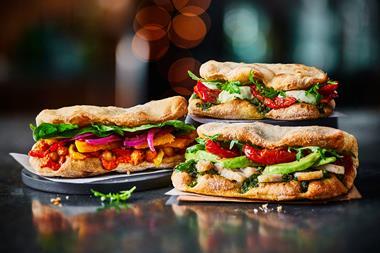Consumers are being advised how to avoid exposure to acrylamide when cooking at home in a new campaign from the Food Standards Agency (FSA).
The Go For Gold campaign has been launched after the FSA’s Total Diet Survey highlighted that UK consumers are exposed to higher levels of acrylamide than is desirable, said the agency.
Acrylamide is a chemical created when foods – particularly starchy ones including bread and potatoes – are cooked for long periods at high temperatures such as when baked, fried, grilled, toasted or roasted.
Laboratory tests have shown acrylamide in the diet causes cancer in animals. Evidence from human studies on the impact of acrylamide in the diet is inconclusive, but scientific consensus is that acrylamide in food has the potential to cause cancer in humans.
“Our research indicates the majority of people are not aware that acrylamide exists, or that they might be able to reduce their personal intake,” said FSA policy director Steve Wearne.
He added that the new campaign was part of wider activity to reduce acrylamide consumption. This includes the development of an industry toolkit and codes of practice that will be “embedded throughout the food chain”.
“We want our campaign to highlight the issue so consumers know how to make the small changes that may reduce their acrylamide consumption while still eating plenty of starchy carbohydrates and vegetables as recommended in government healthy eating advice,” said Wearne.
Fronted by Olympic gold medallist and mother-of-four Denise Lewis, Go For Gold offers consumers advice such as:
- Aim for a golden yellow colour or lighter when frying, baking, toasting or roasting starchy foods like bread and potatoes
- Follow on-pack cooking instructions carefully when frying or oven-heating packaged food
“Although there is more to know about the true extent of the acrylamide risk, there is an important job for government, industry and others to do to help reduce acrylamide intake,” said Wearne.
































No comments yet